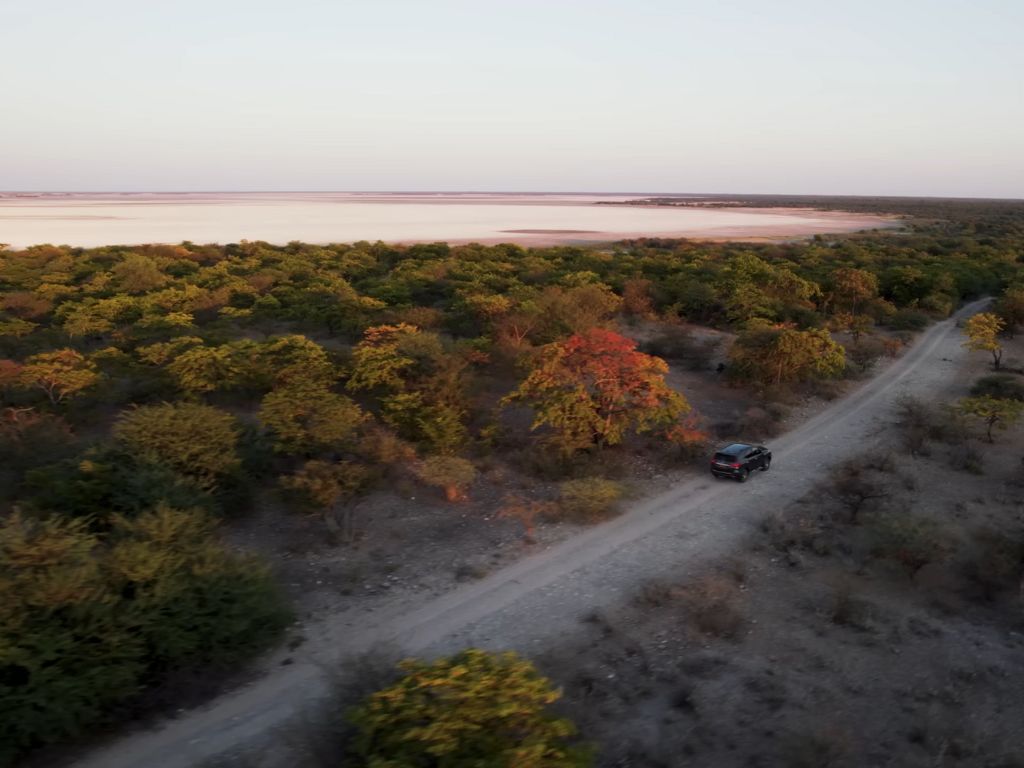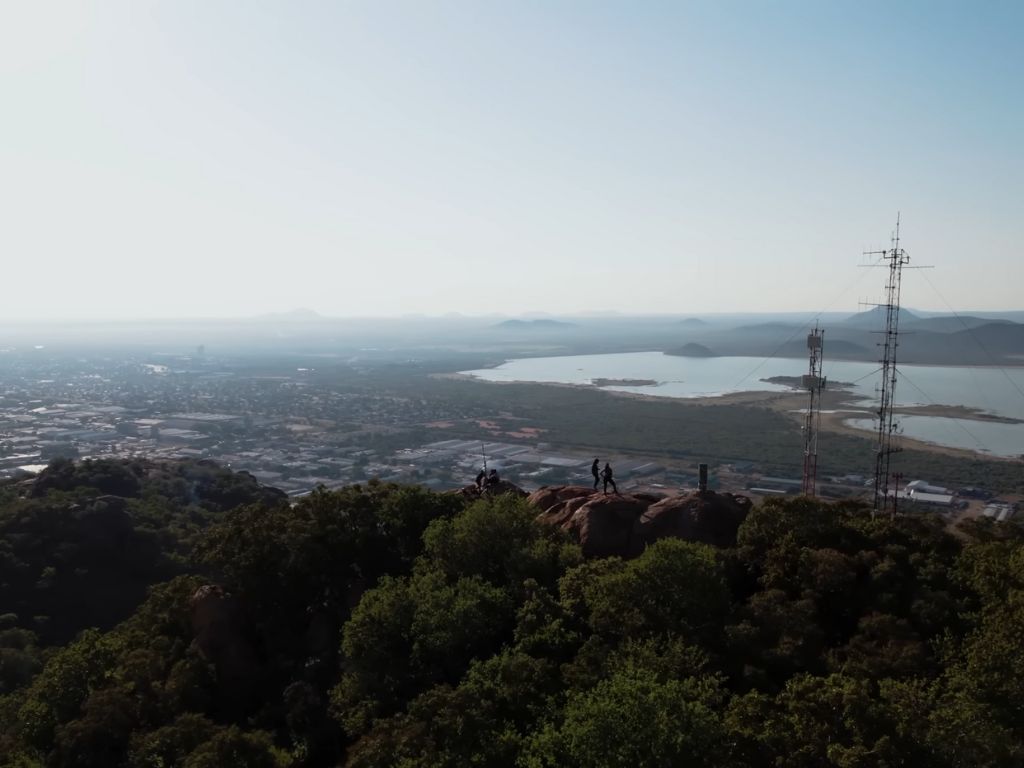Did you know that Botswana’s crime rate is nearly four times the global average? This startling statistic, according to the U.S. Department of State, highlights the critical importance for U.S. citizens to familiarize themselves with the latest Botswana Travel Advisory before embarking on a journey to this southern African nation. As a seasoned traveler myself, I understand the excitement and anticipation of visiting new destinations, but it’s crucial to balance that enthusiasm with the necessary precautions to ensure a safe and enjoyable experience.
The U.S. Department of State has issued a Botswana Travel Advisory to provide American travelers with up-to-date information on the current Botswana travel risks, security conditions, and entry requirements. This advisory is designed to help U.S. citizens make informed decisions and take appropriate measures to mitigate potential threats, such as crimes of opportunity, home invasions, muggings, and thefts.
Key Takeaways
- The U.S. Department of State has issued a Botswana Travel Advisory for U.S. citizens.
- The advisory highlights the prevalence of crimes of opportunity and potentially violent crimes in Botswana.
- U.S. travelers are advised to exercise increased caution and take precautions to stay safe.
- Enrolling in the Smart Traveler Enrollment Program (STEP) is recommended to receive alerts and assistance from the U.S. government.
- Reviewing the Country Security Report for Botswana is essential for understanding the latest travel risks and security conditions.

Overview of Botswana Travel Advisory
The current Botswana Travel Advisory from the U.S. Department of State is set at Level 2, which advises Botswana Botswana Travel Advisory, Botswana Tourism Safety, Botswana Traveler Alerts U.S. citizens to “exercise increased caution” when traveling to the country. The Botswana Travel Risks, Botswana Security Situation, Botswana Visitor Guidelines key travel risks highlighted in the advisory include crimes of opportunity, such as theft of money and personal property, as well as potentially violent crimes like home invasions, “smash and grabs” from vehicles, and muggings.
Current Advisory Level
The U.S. Department of State’s Botswana Travel Advisory currently stands at Level 2, which means U.S. travelers should “exercise increased caution” when visiting the country. This level indicates the presence of identifiable risks to U.S. citizens and the need for enhanced vigilance and safety precautions.
Key Travel Risks
According to the Botswana Travel Advisory, U.S. citizens should be aware of several key travel risks when visiting the country. These include crimes of opportunity, such as theft of money and personal belongings, as well as more serious crimes like home invasions, “smash and grabs” from vehicles, and muggings. The advisory advises travelers to avoid displaying signs of wealth, remain vigilant, and follow safety precautions to mitigate these potential threats.
Safety and Security in Botswana

According to the U.S. Department of State, crimes of opportunity, such as theft of money and personal property, are common in Botswana. Potentially violent crimes, including home invasions, break-ins, “smash and grabs” from vehicles, cell phone thefts, and muggings are also routinely reported to the police. The Botswana Security Situation is a key concern for travelers, as the country experiences a range of Botswana Travel Warnings.
Crime Situation
The U.S. Department of State advises U.S. citizens to avoid displaying signs of wealth, like expensive watches or jewelry, and not to physically resist any robbery attempts. While the advisory does not specify any particular Botswana Tourist Precautions, it recommends travelers exercise increased caution throughout the country due to the crime situation.
Areas to Avoid
Though the Botswana Travel Advisory does not identify any specific areas to avoid, the overall Botswana Security Situation requires heightened vigilance from U.S. travelers. By taking necessary precautions and remaining aware of their surroundings, visitors can help mitigate the risks highlighted in the advisory and have a safe and enjoyable experience in Botswana.
Botswana Travel Advisory
The U.S. Department of State’s Botswana Travel Advisory provides important information for U.S. citizens planning to travel to the country. The advisory includes warnings about the crime situation and advises travelers to exercise increased caution when visiting Botswana.
U.S. Government Travel Warnings
According to the travel advisory, crimes of opportunity, such as theft of money and personal property, are common in Botswana. The advisory also warns about potentially violent crimes, including home invasions, break-ins, “smash and grabs” from vehicles, cell phone thefts, and muggings. U.S. citizens are advised to be vigilant and avoid displaying signs of wealth that could make them targets for criminal activity.
Entry Requirements and Restrictions
The Botswana Travel Advisory outlines several entry requirements and restrictions for U.S. travelers. These include the need to obtain a valid passport and visa (if applicable) and to carry copies of these documents, leaving the originals in a hotel safe. The advisory also recommends that U.S. travelers enroll in the Smart Traveler Enrollment Program (STEP) to receive alerts and make it easier for the U.S. government to locate them in an emergency.
Preparing for Travel to Botswana

Ensuring proper travel documentation and taking necessary health precautions are crucial steps in preparing for a visit to Botswana. According to the U.S. Department of State’s advisory, U.S. citizens should carefully review their travel documentation before their trip.
Travel Documentation
Travelers to Botswana must have a valid passport, and a visa may also be required depending on the purpose and duration of the visit. The advisory recommends that U.S. citizens make copies of their passport and visa (if applicable), and leave the original documents in a hotel safe to prevent loss or theft.
Health Precautions
Regarding considerations, the U.S. Department of State advises U.S. citizens to review the latest travel health information from the Centers for Disease Control and Prevention (CDC). Ensuring that vaccinations are up-to-date and taking appropriate preventative measures, such as packing insect repellent, can help mitigate potential health risks during a trip to Botswana.
Emergency Preparedness
In addition to travel documentation and health precautions, the advisory emphasizes the importance of emergency preparedness. Travelers should prepare a contingency plan for unexpected situations and review the Traveler’s Checklist to ensure they are fully equipped to handle any challenges that may arise during their trip to Botswana.
Local Laws and Special Circumstances
The U.S. Department of State’s Botswana Travel Advisory highlights several local laws and unique situations that U.S. travelers should be aware of. For instance, Botswana strictly enforces regulations governing the trade in animal products, and violators may face penalties of up to five years in prison and substantial fines. The advisory also notes that power outages and water rationing can occur in Botswana due to drought conditions, which may affect home security systems, appliances, and other infrastructure.
Travelers are advised to familiarize themselves with these Botswana Local Laws and Visitor Guidelines to ensure they do not inadvertently break the law during their stay. Understanding the Botswana Travel Restrictions and adhering to local regulations can help ensure a smooth and incident-free trip.
Tips for Safe Travel in Botswana
To ensure a safe and enjoyable trip to Botswana, the U.S. Department of State’s travel advisory provides several tips for U.S. citizens. These include personal safety measures and the importance of staying vigilant while exploring this remarkable country.
Personal Safety Measures
The advisory emphasizes the need for travelers to avoid physically resisting any robbery attempts and to refrain from displaying expensive items that could make them targets for theft. By being mindful of their personal belongings and avoiding unnecessary displays of wealth, Botswana Tourist Precautions can help mitigate the risks highlighted in the travel advisory.
Staying Vigilant
Vigilance is key when navigating Botswana, especially in crowded areas and when using public transportation. The advisory advises travelers to follow their instincts, avoid isolated or poorly lit areas, and promptly report any suspicious activity to the local authorities. By remaining alert and taking proactive measures, U.S. citizens can enhance their Botswana Travel Safety and Botswana Travel Security during their visit.
Resources for Botswana Travelers
The U.S. Department of State’s Botswana Travel Advisory provides several valuable resources for U.S. citizens planning to visit Botswana. These resources can help ensure a safe and informed travel experience.
U.S. Embassy and Consulates
The U.S. Embassy in Gaborone and consular offices throughout Botswana are available to assist U.S. travelers in emergency situations. The travel advisory encourages Americans to familiarize themselves with the contact information and location of these diplomatic facilities in case they need to seek assistance during their trip.
Travel Assistance Services
The advisory also recommends that U.S. citizens enroll in the Smart Traveler Enrollment Program (STEP) prior to their departure. STEP enables the U.S. government to better locate and communicate with Americans in Botswana, providing critical updates and emergency support if needed. Additionally, the Department of State’s website and social media channels offer the latest information and guidance on Botswana Travel Resources and Botswana Travel Assistance.
By taking advantage of these resources provided by the U.S. Embassy Botswana, U.S. travelers can feel more prepared and better equipped to navigate their journey through Botswana safely and confidently.
Conclusion
The U.S. Department of State’s Botswana Travel Advisory provides crucial information for U.S. citizens planning to visit the country. The advisory highlights the current Level 2 threat level, which urges travelers to exercise increased caution due to the prevalence of crimes of opportunity and potentially violent crimes in Botswana.
The advisory outlines key safety and security considerations, entry requirements and restrictions, and essential steps travelers can take to prepare for and stay safe during their trip. By reviewing the information in the Botswana Travel Advisory and taking appropriate precautions, U.S. citizens can help ensure a safe and enjoyable travel experience in Botswana.
Whether planning a business trip or a leisure vacation, the U.S. Department of State’s advisory is an invaluable resource for any U.S. citizen considering travel to Botswana. By staying informed and exercising the necessary caution, travelers can make the most of their time in this vibrant African nation while prioritizing their personal safety and security.
FAQ
What is the current level of the U.S. Department of State’s Botswana Travel Advisory?
The current Botswana Travel Advisory from the U.S. Department of State is at Level 2, which means U.S. citizens should “exercise increased caution” when traveling to Botswana.
What are the key travel risks highlighted in the Botswana Travel Advisory?
The key travel risks highlighted in the advisory include crimes of opportunity, such as theft of money and personal property, as well as potentially violent crimes like home invasions, “smash and grabs” from vehicles, and muggings.
What precautions does the advisory recommend for U.S. travelers in Botswana?
The advisory advises U.S. travelers to be vigilant, avoid displaying signs of wealth, and follow safety precautions to mitigate the risks of crime in Botswana.
What entry requirements and restrictions are mentioned in the Botswana Travel Advisory?
The advisory recommends that U.S. travelers obtain a valid passport and visa (if applicable) and carry copies of these documents, leaving the originals in a hotel safe.
What health precautions does the advisory recommend for travelers to Botswana?
The advisory recommends that U.S. citizens review the latest travel health information from the CDC and take appropriate health precautions, such as ensuring their vaccinations are up-to-date.
What local laws and special circumstances should U.S. travelers be aware of in Botswana?
The advisory notes that Botswana strictly enforces laws controlling the trade in animal products, and that power outages and water rationing can occur due to drought conditions, which may affect home security systems and infrastructure.
What resources does the Botswana Travel Advisory provide for U.S. travelers?
The advisory provides information on the U.S. Embassy and consular offices in Botswana, as well as recommends that travelers enroll in the Smart Traveler Enrollment Program (STEP) and review the Department of State’s website and social media channels for the latest updates.
Source Links
- https://travel.state.gov/content/travel/en/traveladvisories/traveladvisories.html/
- https://travel.state.gov/content/travel/en/traveladvisories/traveladvisories/botswana-travel-advisory.html
- https://travel.state.gov/content/travel/en/international-travel/International-Travel-Country-Information-Pages/Botswana.html

